How Billy Wilder’s ‘Ace in the Hole’ Predicted Internet Sensationalism in 1951
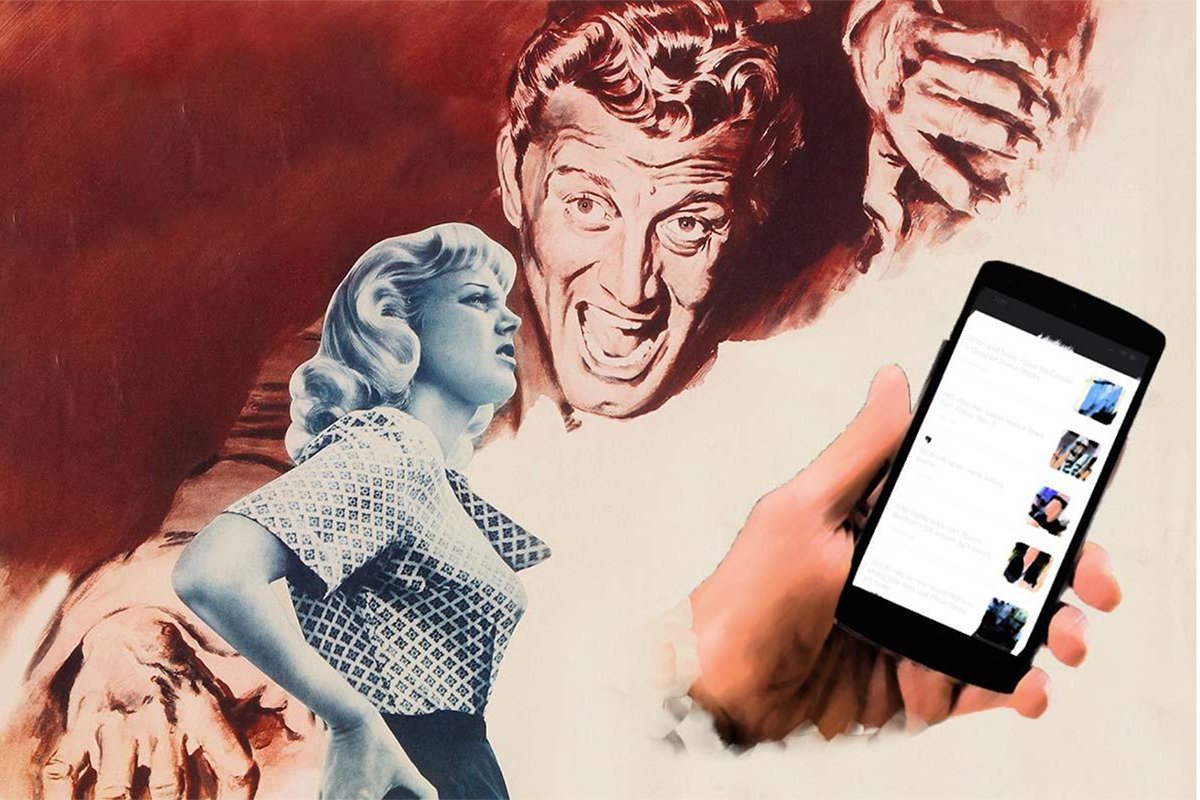
In 1951, Billy Wilder’s Ace in the Hole predicted the sensationalist framing that’s prevalent in a lot of modern media, especially on the internet. Composite image by Coffee or Die.
Though it often feels like modern problems are unique to the current era, old films and books often remind us that human problems are almost never new. When it comes to media ethics and effects, Billy Wilder’s 1951 film Ace in the Hole poignantly illustrates how unethical reporting, sensational framing, and consumer angst toward the mainstream media are not new to the current media landscape.
The film follows Chuck Tatum, a ruthless, big-shot journalist who is forced out of the city to a small Albuquerque newspaper. Tatum, played by Kirk Douglas, thirsts for a big story, some national sensation that will skyrocket him back into the major leagues of the news world.
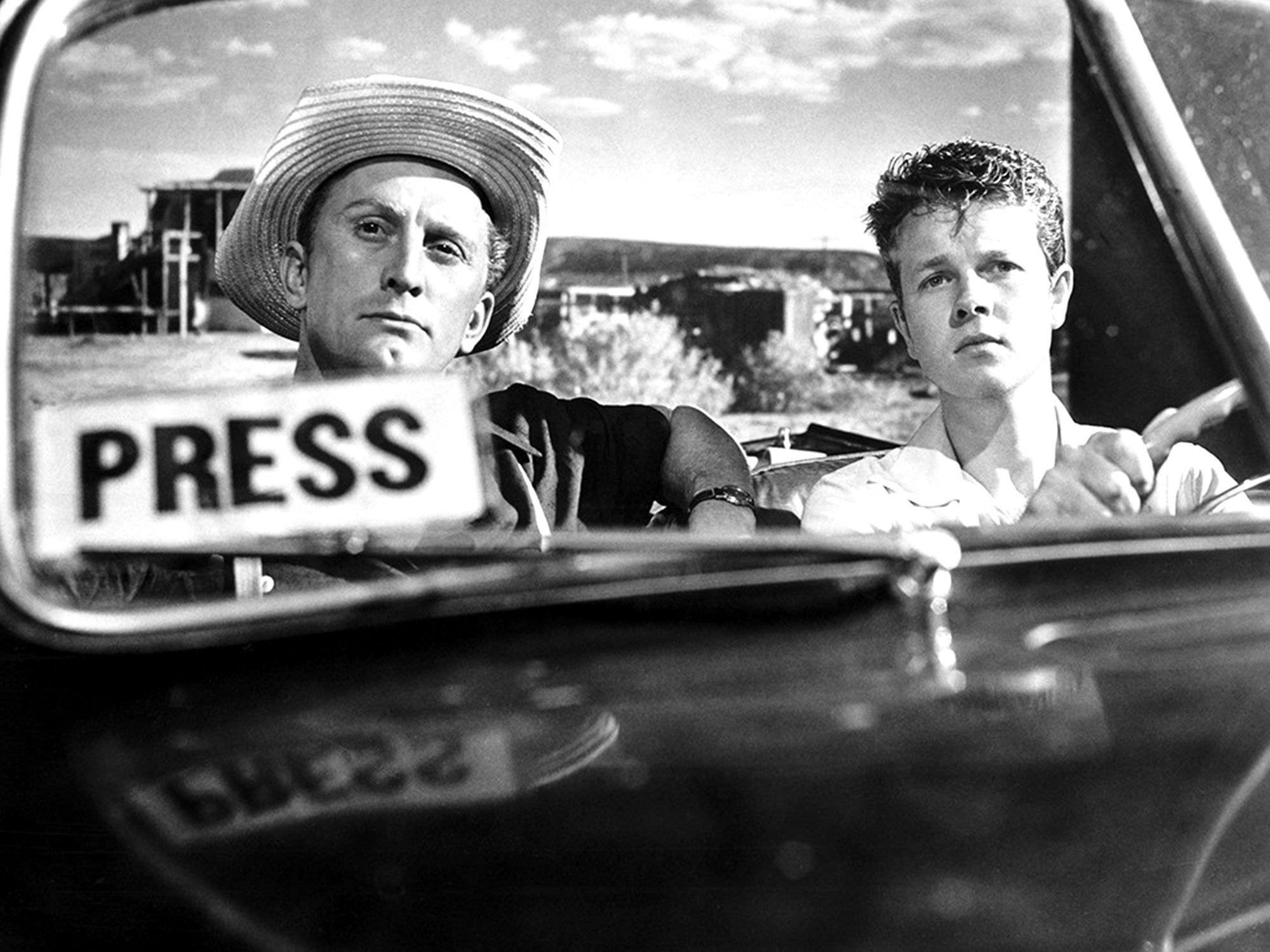
Tatum hits a stroke of “luck” when a man is found stuck in a collapsed cave. As Tatum approaches the cave, he explains to a younger, more impressionable journalist how he sees opportunity in the tragedy.
“You pick up the paper, you read about 84 men or 284, or a million men, like in a Chinese famine,” Tatum says. “You read it, but it doesn’t stay with you. One man’s different, you want to know all about him. That’s human interest.”
As rescue crews scurry to dig the poor soul out of the mountain, the scene devolves into a circus. Tatum sells a part of his soul to make the story more sensational, drawing bigger crowds to the scene of the rescue, and positioning himself so that every major news outlet in the country is begging for his exclusive coverage.
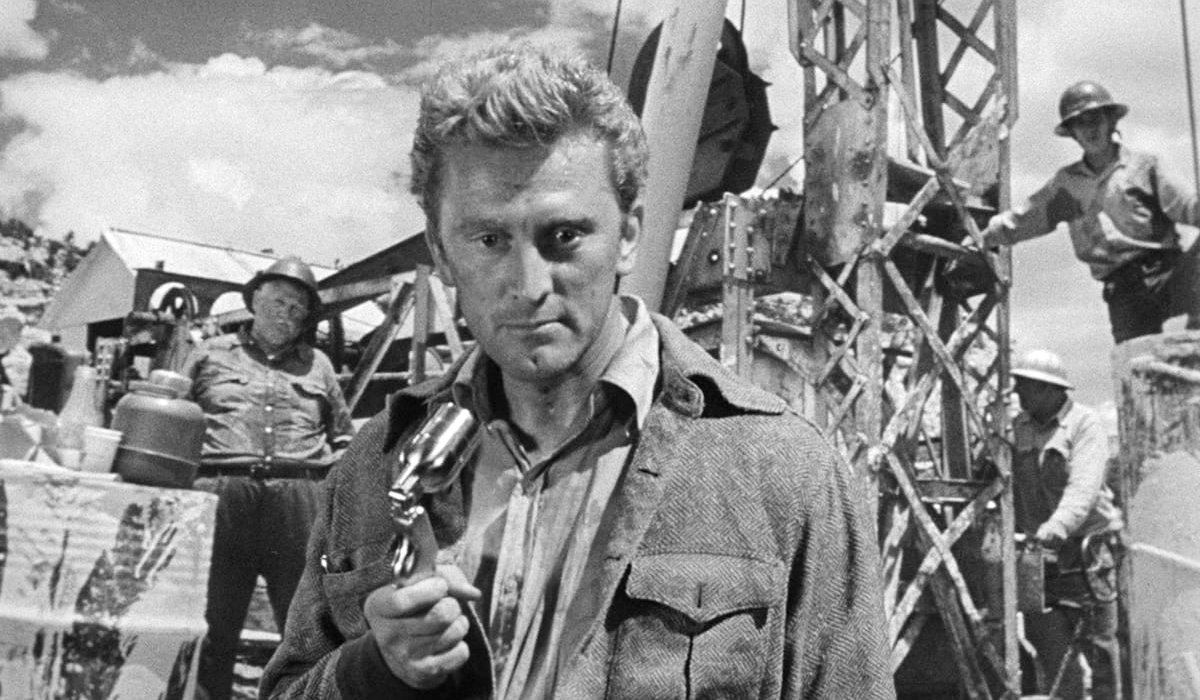
The First Amendment to the United States Constitution legally protects the freedom of the press. As is the case with any freedom, that comes with a heavy responsibility that some will ethically uphold and others will abuse. Ace in the Hole is about the latter.
When a seasoned miner criticizes the rescue efforts, a radio host and the gathered crowd are initially interested, especially when the miner recalls his personal experience with cave-ins and rescue efforts. Threatened by the man’s appeal to reason, Tatum confronts the miner and twists his words to make him sound like a rambling old fool, covering his own tracks in order to extend the rescue efforts and continue his news coverage. Before the old miner can defend himself, a woman butts in, touting her “experience” in an elevator that was stuck once. Her silly anecdote pushes the miner’s wisdom to the side as she simply speaks louder and faster.
The pattern of drowning out reasonable voices and favoring sensationalism over truth should be familiar to anyone who’s spent time on the internet recently.
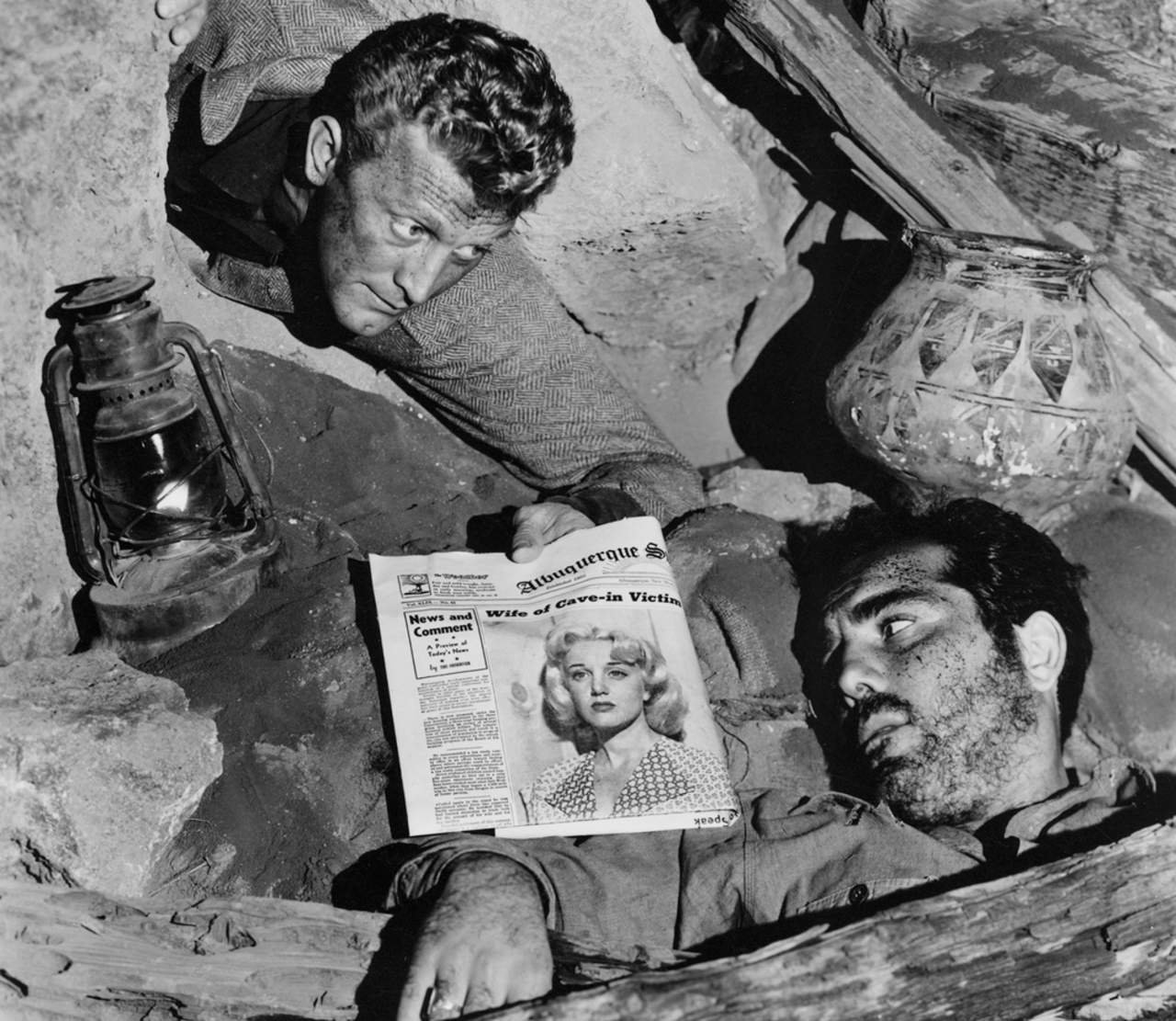
The sensationalism affects families too. Some gathered family members are no better than the reporters, businessmen, or officials leveraging the event for personal gain; they scrape and claw at the opportunity to rake in some cash and bask in the light of fame for a few minutes.
The victim’s wife could care less about her husband and wants to use the opportunity to make life better for herself. Though she has a complicated story and a reasonable desire to leave, she doesn’t hesitate to leave her husband to the wolves and look for a way to benefit from the situation.
Conversely, those who care deeply and are hurt by the tragedy are often swept to the side, forgotten by the bloodthirsty media. When the victim’s father — an old man who just wants his son back — fails to contribute to the drama and fire of the situation, he is pushed aside for someone who can contribute to the show.
A literal circus even winds up coming to town, setting up shop outside the cave and selling services for the folks who have lined up to watch the rescue.
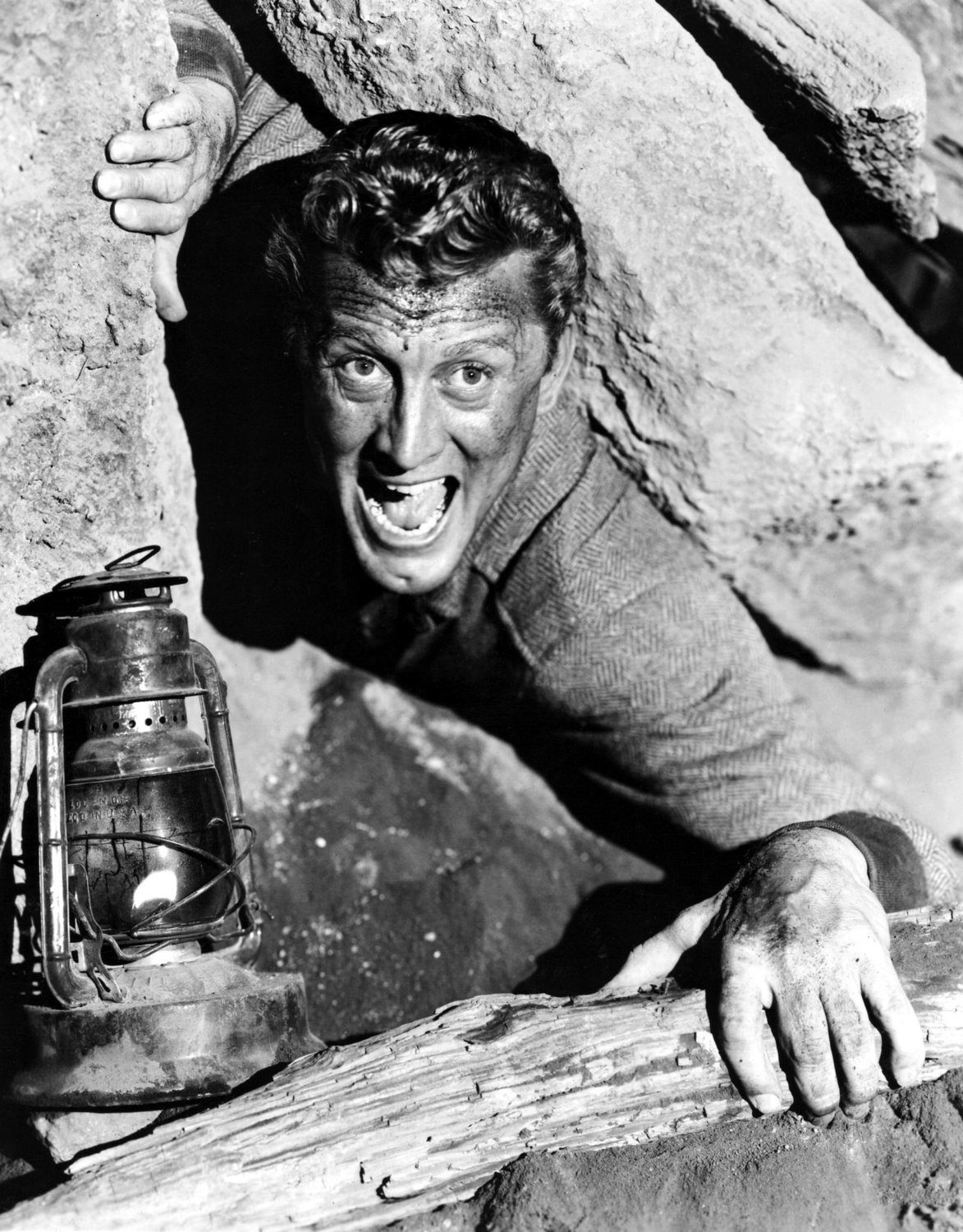
If Tatum represents the mass media, then the audience that sets up camp outside the cave represents the mass consumers of news. Some shed tears over the peril of the man in the cave; some watch with wide eyes and wonder how he might die. Most are eating cotton candy and bickering over the best “spot” to watch the events unfold.
When Tatum leverages the situation just right, he is able to do whatever he wants. A muscular, confident man with an imposing stature, Tatum is able to manipulate other journalists, editors, police officers, politicians, miners, rescue workers, and family members just as easily as he can physically push them around. He literally hits two cops and the wife of the man trapped in the cave without consequence. He’s a bully, and he uses his power to get what he wants.
Tatum’s stature and coercive tactics reflect the power media members can have and how it can be abused to forge a false perception of truth. As the film progresses, truth is repeatedly forsaken as everything is mired in an intricate web of lies and ambitions.
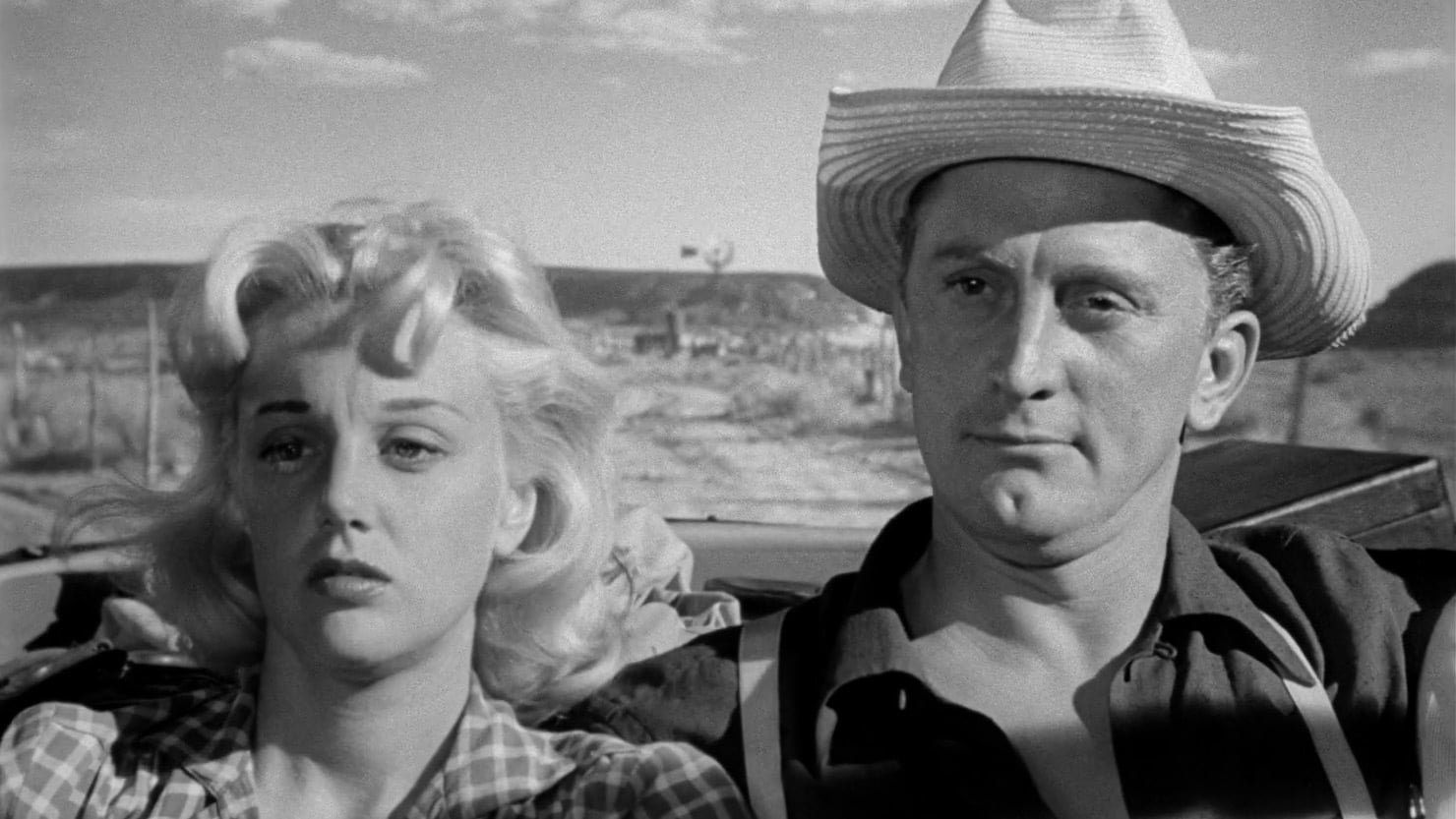
As with many anti-hero stories, the character juxtaposed to the protagonist ultimately tells the audience where the heart of the story is. In Ace in the Hole, it’s the old editor of the Albuquerque newspaper. He’s not a flashy or particularly ambitious man, but he cares deeply about the nature of the stories told in his paper. He cares that they’re true and honest and that they function to address the people on real events in the real world, and nothing more. In this respect, he’s the opposite of Chuck Tatum.
In the end, the film poses a vital question: Given the extraordinary power the First Amendment bestows to the American people, how do journalists wield that power ethically? The question is as relevant today as it was in 1951.
Read Next: Coffee or Die Magazine’s Top Stories of 2021

Luke Ryan is the author of two books of war poetry: The Gun and the Scythe and A Moment of Violence. Luke grew up overseas in Pakistan and Thailand, the son of aid workers. Later, he served as an Army Ranger and conducted four deployments to Afghanistan, leaving as a team leader. He has published over 600 written works on a variety of platforms, including the New York Times.
BRCC and Bad Moon Print Press team up for an exclusive, limited-edition T-shirt design!
BRCC partners with Team Room Design for an exclusive T-shirt release!
Thirty Seconds Out has partnered with BRCC for an exclusive shirt design invoking the God of Winter.
Lucas O'Hara of Grizzly Forge has teamed up with BRCC for a badass, exclusive Shirt Club T-shirt design featuring his most popular knife and tiomahawk.
Coffee or Die sits down with one of the graphic designers behind Black Rifle Coffee's signature look and vibe.
Biden will award the Medal of Honor to a Vietnam War Army helicopter pilot who risked his life to save a reconnaissance team from almost certain death.
Ever wonder how much Jack Mandaville would f*ck sh*t up if he went back in time? The American Revolution didn't even see him coming.
A nearly 200-year-old West Point time capsule that at first appeared to yield little more than dust contains hidden treasure, the US Military Academy said.












